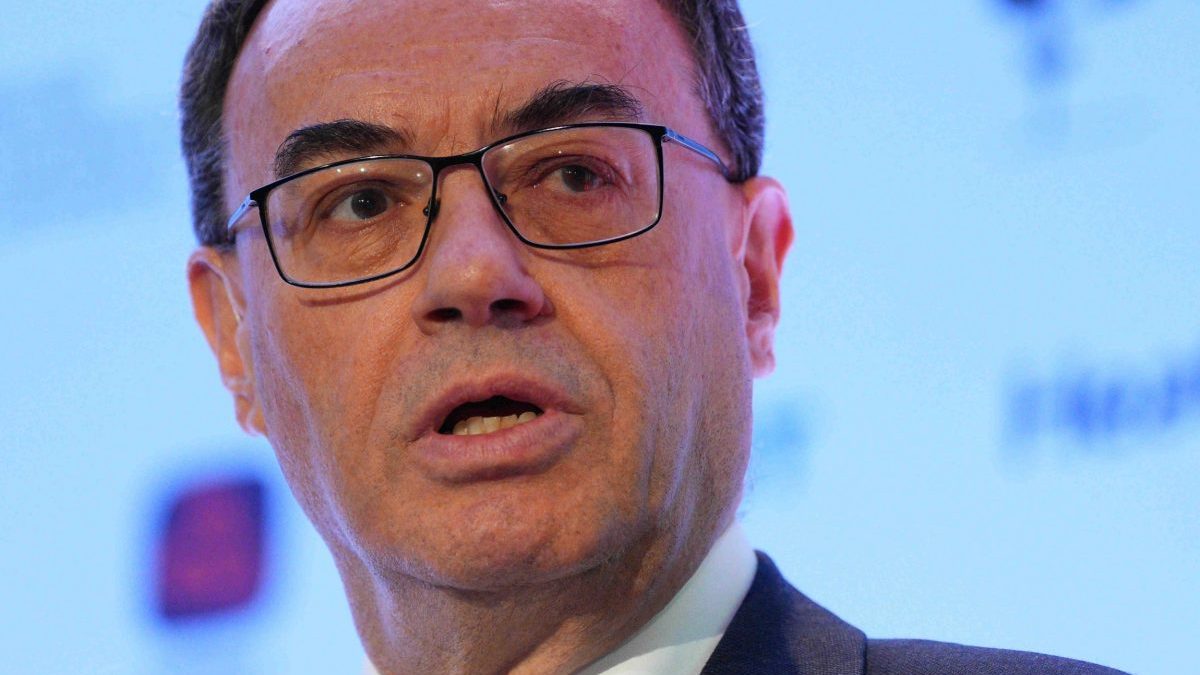Bill going through Parliament includes clause allowing government to tell pension schemes how to invest their cash
The Bank of England Governor, Andrew Bailey, has made a “nuclear” intervention by saying he does not agree with potential Government plans to mandate that pension funds invest more in UK assets.
The Pension Schemes Bill, which is currently on its passage through Parliament, includes a clause which would allow the Government to tell pension schemes how to invest their cash.
The Government has insisted it does not want to use the power, but has put it in the bill as a backstop, if needed, to get schemes to invest a minimum proportion in ways it hopes would boost the economy – such as in UK infrastructure and UK private markets.
But speaking about mandating on Wednesday, Bailey said: “I do not support mandating, I don’t think that’s appropriate.”
Pension experts have said his comments will be “very unwelcome” to the Government.
Sir Steve Webb, ex-pensions minister and now a partner at LCP, said: “The governor will not have chosen lightly to be so critical of Government policy, and his nuclear intervention will be very unwelcome at DWP [Department of Work and Pensions].”
He added: “But the governor speaks for many in thinking that the Government is crossing a line if it presses ahead with plans to tell pension schemes how to invest.
“Whilst pension assets can certainly be used more productively, it is ultimately for the trustees of pension schemes to decide how to invest in the best interests of their members, and not for ministers to tell them how to invest.
“This challenge raises serious questions about whether this policy will survive scrutiny in the House of Commons and House of Lords over the coming months.”
Tom Selby, director of public policy at AJ Bell, added: “Bailey’s comments essentially blow the doors off government claims that mandating, or threatening to mandate, pension funds invest in the UK economy is some sort of guaranteed win-win for savers and the chancellor.
“The reality is that this approach comes with risks – lower returns for pension savers – and even threatening to mandate could force shifts in asset allocation, driven by government policy rather than pension savers’ best interests. It is a risky strategy and policymakers need to be honest about what those risks are.”
Rachel Reeves and Sir Keir Starmer have made economic growth a key part of the Government’s strategy – and are relying on doing so to deal to some extent with the UK’s growing debt problems.
But they have been dogged by a stubbornly flatlining economy.
On Tuesday the Office for Budget Responsibility warned that the UK’s finances are currently “unsustainable”.
Mansion House Accord
The bill was debated by MPs for the first time on Monday.
But before this, the Government has tried to increase pension investment in the UK via voluntary means.
The recent “Mansion House Accord” sought a commitment by 17 schemes and providers to invest 10 per cent in private assets, of which 5 per cent would be in the UK.
But several major banks and providers shunned the agreement.
Santander, Scottish Widows, Fidelity and Hargreaves Lansdown have all declined to back the accord.
The boss of Lloyds Banking Group, which also refused to sign, likened forcing pension funds to invest in UK assets to “capital controls”, and arguing that tackling the housing crisis and improving Britons’ financial resilience would be a better way to grow the economy.
Charlie Nunn said mandation would put funds “in conflict” with their fiduciary legal obligations to find the best returns for pensioners.
The DWP was approached for comment.
